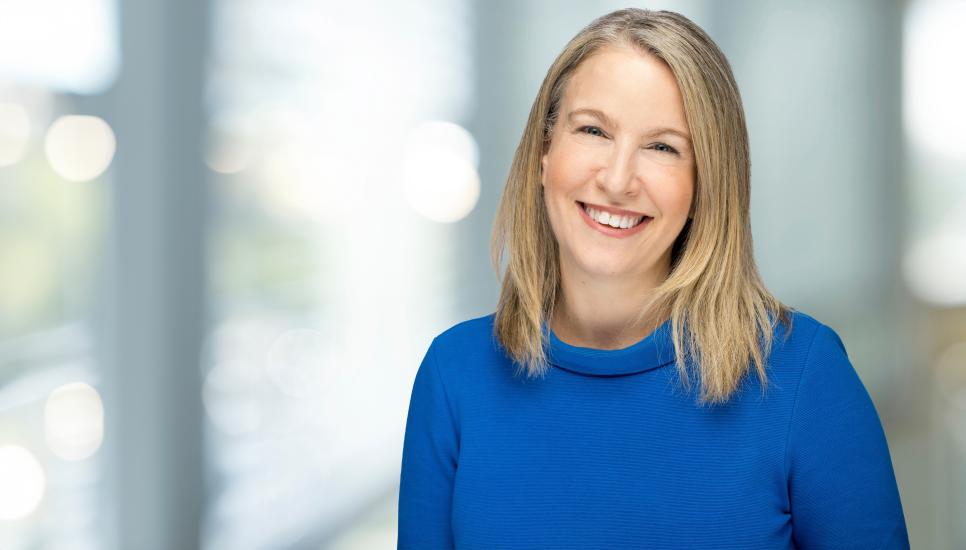Gates Philanthropy Partners: Expanding the spectrum of giving

Philanthropy has always been top of mind for most ultra-high-net-worth (UHNW) families, and it has long been considered a powerful tool to bring generations closer together through shared goals.
However, only 30% of family offices have documented strategies to deploy wealth in a truly meaningful way [1]. This disconnect is just one of several challenges that families face regarding philanthropic planning.
Over the next 25 years, it’s estimated that Baby Boomers will pass along nearly $48 trillion in assets to their heirs and charities, with Generation X being the biggest beneficiaries [2]. To put things into perspective, total giving in the United States was more than $471 billion in 2020 [3]. As a result, the sheer size of the Great Wealth Transfer will make unifying philanthropic goals not only more important but more complex, especially when considering unique financial needs and priorities, as well as different personalities and family dynamics.
Gates Philanthropy Partners (GPP) is a charity that enables donors to give alongside the Bill & Melinda Gates Foundation to fight poverty, disease, and inequity around the world. GPP has quietly mobilised and distributed more than $240 million to 107 organisations since 2016, advancing global health and development.
Jennifer Alcorn is a deputy director at the Bill & Melinda Gates Foundation, which provides staffing support to GPP. Here, she reveals why philanthropy is increasingly moving toward collaborative giving models and why donating alongside the Gates Foundation can advance UHNW families’ impact…

What are the aims of Gates Philanthropy Partners?
Really, it’s a way for the Bill & Melinda Gates Foundation to open its impact up to others. We focus on strategy development, diligence and deep grant-making, and for so long we’ve kind of held it to ourselves.
We realised there was a way to open it up by having a public charity and allowing other people to put their philanthropy to work alongside the foundation. It just seemed like a no-brainer, honestly, to be able to do that.
So now, it's really cool, Gates Philanthropy Partners gets everything from small donations to millions and millions of dollars from ultra-high-net-worth individuals. We’re able to span the philanthropy spectrum, and everybody has the opportunity to do philanthropy in their own way.
How is GPP tied with the Bill & Melinda Gates Foundation?
All the funding that comes into GPP is granted alongside Gates Foundation grants. My team looks at where there are big funding gaps or where there’s an urgency, and then we work with Gates Foundation programme teams to put GPP funding alongside foundation funding. So, it really allows a project to either be accelerated or expanded by adding this additional funding into it, and then you get the benefit of having a Gates Foundation programme expert manage it for you.
Collaborative giving gives you the benefit of working with other people who have new and different ideas and ranges of experience in philanthropy.
Many philanthropic families like to focus on areas that have personal meaning to them, whether that’s an alma mater, the arts or a particular medical or charitable area. What would be the appeal to them of hitching their wagon to GPP and the Bill & Melinda Gates Foundation?
My experience is that people will see or read about something that's happening in, say, Asia or Africa, and they don't know where to start because the problem is really big. There are multiple organisations working on it and so they're looking for someone who can help navigate things.
The Gates Foundation has identified sets of grants with funding gaps, and GPP can add your funding to them. People come to us to tap into the Gates Foundation’s experience and to benefit from that diligence. We often hear that, when giving outside of one’s country, they’re worried about getting all the funds directly and for it not to be siphoned off elsewhere. We can leverage the Gates Foundation’s grant-making processes to reduce these risks and help people feel confident about giving in the future.
GPP believes that philanthropy is increasingly moving toward collaborative giving and new funding models. Why do you think this is a more effective strategy?
I think there are a couple of reasons. First, collaborative giving gives you the benefit of working with other people who have new and different ideas and ranges of experience in philanthropy.
In a lot of cases, you get the chance to learn alongside other people. I've both led and funded collaboratives over the past ten to 12 years, and it has been really amazing to see what happens when you bring people together who are at different stages of their giving, and how they can learn from one another—both the people who are more advanced in their giving and like being able to see from a new perspective, and those that are new to their giving and thinking about how to work through all the issues that come along with philanthropy.
The second piece that’s of huge benefit is that these kinds of collaborative vehicles can provide a really easy way to take advantage of expertise and diligence without having to recreate the wheel. For a very rational overhead cost, you know you're getting all of those benefits that you may not have if you're embarking individually on your own thing.
Another piece to bear in mind is reporting—the monitoring, the evaluation and the ability for these collaboratives to turn around reporting to donors and to be very transparent about what's working and what's not.

According to Campden Wealth’s North American Family Office Report 2022, the majority (86%) of families in North America give philanthropically (the global average is 82%). Why is philanthropy so appealing to multi-generational families of wealth?
It's a way to work together and to learn together. Families come into philanthropy from different perspectives and you see generational differences, but you can come into Gates Philanthropy Partners and have that shared experience with those different perspectives and be able to jointly have the impact that you're all trying to reach.
There are areas where there is great need right now and where you can see an impact from the gift that you're making within a couple of years. That's pretty incredible to be able to have that experience and to do it as a family.
The report also found that the vast majority of family offices in North America support education (87%), followed by economic and social impact (66%), healthcare (59%), the environment (44%), political / civil matters (35%) and conflict resolution (14%). As someone heavily involved in the philanthropy space, does these fact that there’s such a focus on giving within their sphere of experience surprise you?
It makes absolute sense. So many people are focused on what’s going on in their own backyard. As they start to expand their perspectives and start to get the sense of the things that they can be doing globally, I would love to see that focus shift over time.
It will only happen as people start to have that broader perspective of what else is happening in the world. You see it in key moments or emergencies, like the war in Ukraine or with COVID-19, but they tend to be blips for emergencies and then come back down to what people know.
There's a universality to the human experience, and people ultimately care about others and want to help. So, as their philanthropy grows, we're here if they if they find themselves interested in global health and development, and are really interested in making a difference in the lives of people outside of where they live.
For more information about Gates Philanthropy Partners, click here.
[1] BNY Mellon Wealth Management: Shifting Horizons – Insights into How Family Offices Are Responding to Rapid Economic and Social Change. February 2022.
[2] Cerulli Associates: HNW Transfer of Wealth. Accessed April 2022.
[3] Fortune: Americans gave a record $471 billion to charity in 2020. June 2021.





